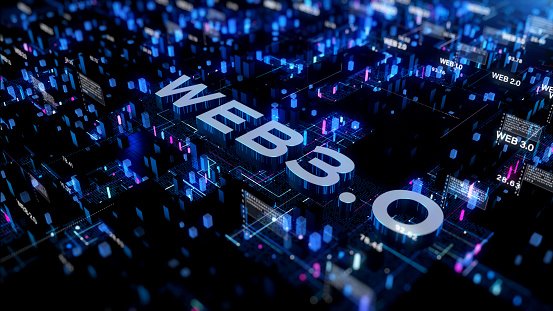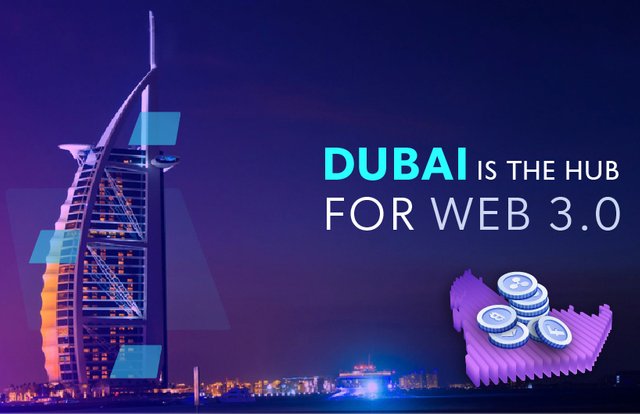The phrase “Web3” refers to a collection of developments that comprise what is frequently referred to as the “decentralized internet.” The goal is to build an internet that is not dominated by large firms like Google and Facebook, which currently establish most of the rules for what we can and cannot do online.

Web3 proposes that technologies such as blockchain, cryptocurrencies, non-fungible tokens (NFTs), and decentralized autonomous organizations (DAOs) provide us with the tools we need to construct online spaces that we genuinely own and even implement digital democracies.
Why is Web3 used? To summarize the history of the web, Web1 was the first iteration of the world wide web, which was primarily a read-only affair comprised of static webpages. Web2 (or Web 2.0 as it was more generally known) refers to the user-generated web that arose with the introduction of social networking sites like as MySpace and, eventually, Facebook, which leads us to Web3 — the decentralized web!
However, the notion is not without its detractors, who fear that it will merely represent a shift of power from one set of technocrats to another. Others have emphasized the vast amount of electricity that is frequently required to run systems that enable decentralization, such as blockchain. These are undoubtedly hurdles that must be overcome before the notion can obtain the societal buy-in required to realize its full potential. In 2023, we may see progress toward this goal or increased rejection of the concept as a whole. So, here’s a look at some of the themes that will shape Web3’s future in 2023.
The decentralized metaverse
The metaverse is a trendy topic right now, with everyone from Facebook to Microsoft (MSFT-0.1%) brainstorming ideas for the “next level” of the internet. Proponents of the Web3 future, on the other hand, have their own ideas, which do not entail platforms controlled by Silicon Valley behemoths.
The Sandbox and Decentraland are perhaps the two most visible instances of decentralized metaverse platforms. The data that makes up these digital worlds is kept on a blockchain — specifically, the Ethereum blockchain. This means that only those with permission can make changes or add and remove elements. The server that hosts the data that makes up the world has no specific owner who can block activities that does not align with their political beliefs or shut it down totally if they decide they want to. This clearly does not apply to sites like Facebook, because the corporation that controls the servers always has the final word!
Decentralized virtual environments are a key component of the vision for where Web3 will lead us in the next decade, and we can expect pioneers to continue laying the groundwork that could someday make it a reality in 2023.
NFTs that are useful?
Non-fungible tokens are tokens that are unique to a blockchain. In contrast to cryptocurrencies, where there may be millions of similar tokens on the chain, an NFT can be used to represent anything unique.
Most people are familiar with NFTs as works of computer art that routinely sell for thousands or millions of dollars (or did do, before the market for them somewhat collapsed this year, at least).
However, enabling digital art sales is only one use case for them, and many who trust in the future of a decentralized web believe that their actual worth will lay in tokenizing goods, data, and even ideas in the digital and physical domains.
The decentralized internet’s NFTs may be the keys we use to unlock and engage with the digital products and services we purchase. They could also represent contracts we put into with third parties to obtain goods and services (referred to as smart contracts) or the keys to our virtual metaverse homes.
In 2023, the emphasis will be on “doing something” NFTs, often known as “utility NFTs,” rather than NFTs that simply represent virtual pieces of art or similar. This, perhaps, will result in a shift in perspective of this potentially game-changing technology and a clearer knowledge of how it fits within the emerging Web3 ecosystem.
Social networks that are decentralized
One of the Web3 movement’s goals is to build a decentralized social network. If this becomes a reality in 2023, it might be down to none other than Elon Musk.
Elon Musk, the CEO of Tesla, has expressed interest in developing such a social network, in which users would pay a small bit of cryptocurrency each time they wrote a remark, in order to deter trolling and spambots.
These theories emerged as a result of legal actions around Musk’s on-again, off-again intentions to buy Twitter.
According to Web3 supporters, one of the primary benefits of a decentralized social network would be its resistance to censorship. Corporations like Meta (owners of Facebook, WhatsApp, and Instagram) and Twitter currently have the final word over what can and cannot be stated. Of course, if this means that Web3 users will eventually be able to say whatever they want without fear of censorship, then wider society (including governments and lawmakers) will have to decide whether or not this is a desirable thing.
Greenifying Web3
Even the most ardent Web3 supporters must admit that the technology has challenges when it comes to green credentials. At its peak, the BitcoinBTC 0.0% blockchain network alone was predicted to consume about the same amount of energy as Argentina (130 terawatt hours per hour), with a single bitcoin transaction emitting 772 kilos of CO2. Clearly, this is not sustainable, and Tesla CEO Elon Musk cited this massive energy consumption as a reason for his company’s withdrawal from the technology.
Since then, there have been concentrated efforts to lower energy consumption while maintaining the use of blockchain and related Web3 technologies. The Ethereum network, perhaps most significantly, recently completed its shift from a proof-of-work to proof-of-stake algorithm — leading to a reported 98% reduction in the overall amount of energy used on the network.
In addition to reducing the amount of energy directly utilized by Web3 initiatives by 2023, we may anticipate increased attempts to use the technology to achieve green goals. The World Economic Forum has emphasized the potential for technology to enable organizations to collaborate and produce collaborative technology that will speed climate change mitigation. One contemporary method being investigated is “regenerative finance” (ReFi), which tries to encourage financial incentives for enterprises that restore or protect “resources important for planetary welfare.”
Government participation and regulation in the Web3 sector are increasing.
As the revolutionary influence of this technology becomes clearer, governments will be more likely (and some would argue, required) to step in to oversee and regulate the impact on economies, society, and the environment. In the United States, states such as Wyoming have utilized their legislative abilities to design and adopt their own legislation in order to promote themselves as “Web3-friendly” zones. The concept is that enterprises engaging in Web3 activities will receive preferential status and specific tax considerations in exchange for accepting regulation and oversight. Colorado was also the first state to accept cryptocurrencies as payment for taxes and governmental fees this year.

Outside of the United States, Dubai has demonstrated a strong desire to become a Web3 and cryptocurrency-friendly society. The emirate has developed economic programs to entice companies involved in Web3 work to establish operations in its territory, as well as promoting itself as a natural home for innovation in the fields of artificial intelligence, cloud computing, and the metaverse — all of which are closely related to new developments in Web3. Other countries are anticipated to promote themselves as Web3-friendly by 2023, often through the usage of central bank digital currencies such as India’s upcoming e-rupee and China’s Digital Yuan.
To remain up to date on the latest business and technology trends, sign up for my newsletter, follow me on Twitter, LinkedIn, and YouTube, and read my books ‘Tech Trends in Practice’ and ‘Business Trends in Practice,’ which recently won the 2022 Business Book of the Year award.
If you are interested in this and need more info on web 3.0 visit vorem.co and get started on your journey to greatness.